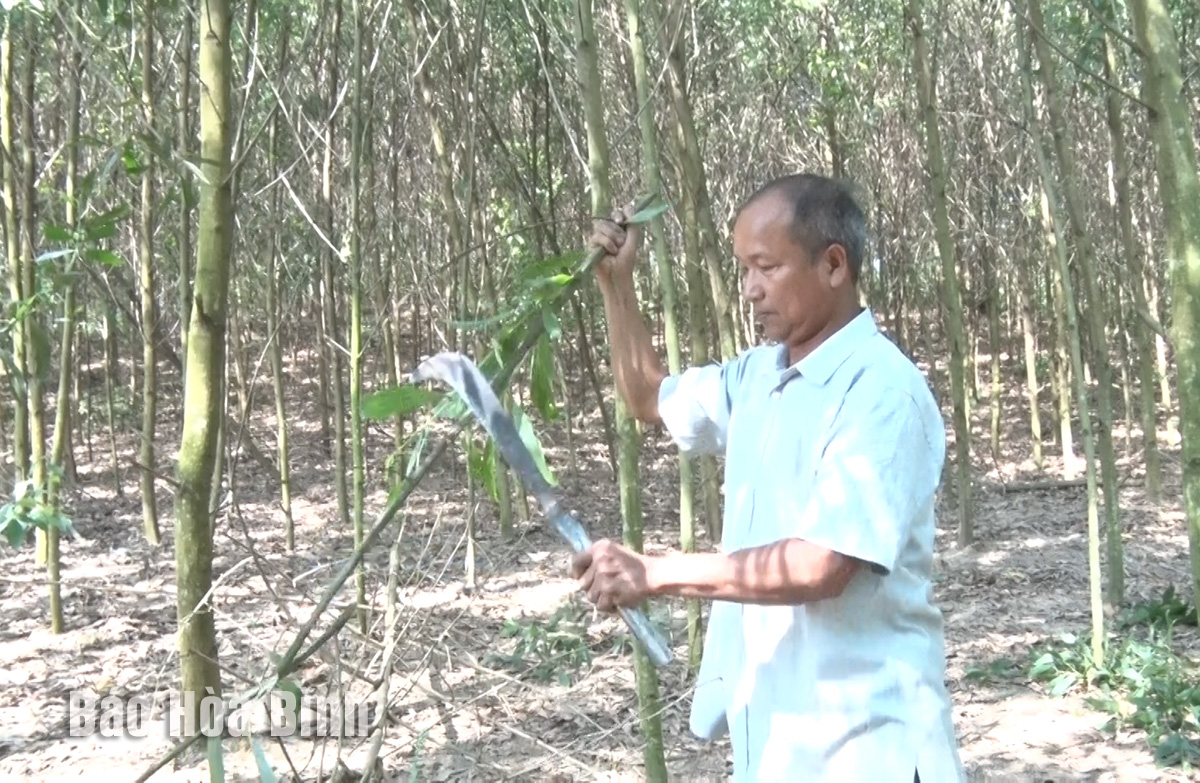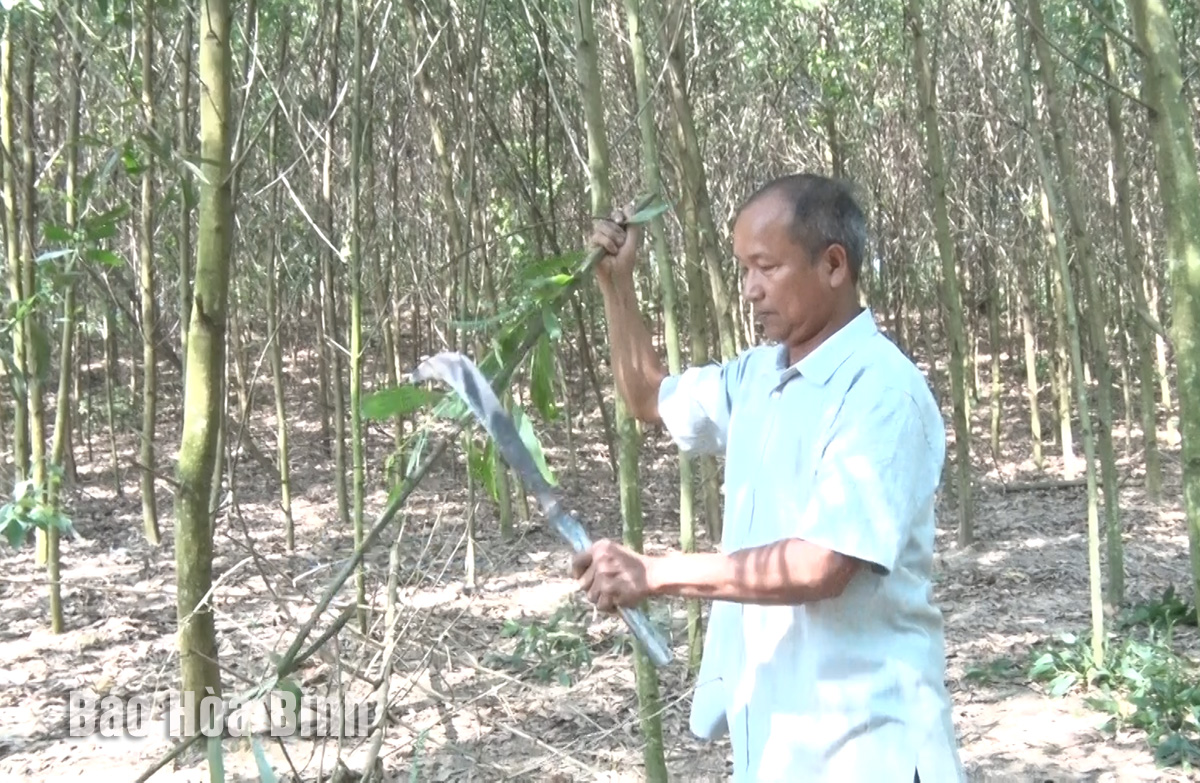
Kim Boi district of Hoa Binh province has identified the movement to encourage farmers to emulate in production and business, unite to help each other get rich and reduce poverty sustainably as one of the three key emulation movements, according to Chairman of the district Farmers' Association Nguyen Manh Hung.
In recent years, the farmers’ associations at all levels in the district have done a good job of disseminating and encouraging members and farmers to innovate their mindset and change their ways of doing, effectively exploit the potential and strengths of capital, labour, and land for investment in production and business, thus gradually escaping poverty and getting rich. Through the movement, many farming households have developed into businesses and cooperatives in agricultural production and business, creating jobs and stable incomes for hundreds of rural labourers.
Do Cat Luc, member of Sao Bay commune Farmers' Association (Kim Boi district), develops combined production model that brings high economic efficiency.
Since 2015, the family of Do Cat Luc, a member of the Farmers’ Association of Sao Bac hamlet, Sao Bay commune, has removed mixed gardens to expand a combined production model. Luc shared that with a total area of about five hectares, his family is currently growing three hectares of acacia, raising pigs for meat, and chickens and ducks for eggs under the canopy of trees; and uses about two hectares of water surface to raise fish. In 2023, the family's total income reached about 800 million VND (32,200 USD). In addition, his family creates stable jobs for four local people with an average salary of 5 million VND a person a month.
In 2023, Kim Boi district had 10,846 households registered to meet the standards of good production and business households at all levels, of which 5,971 were recognised, including 10 at the central level, and 202 at the provincial level and 10 households at the district level.
To create conditions for member households to gain access to loans, the farmers' associations at all levels in the district have received and well managed entrusted loans from the district Bank for Social Policies, with a total outstanding debt of 138.4 billion VND and 3,428 borrowers.
The movement has helped change the mindset and working method of farmers in Kim Boi district, and helped them get rid of poverty and become rich, thus contributing to building new-style rural areas and ensuring social security.
According to data from the Hoa Binh Provincial Party Committee, the industrial production index for the first six months of 2025 is estimated to have increased by 20% compared to the same period last year. This marks the highest year-on-year growth rate for this period since 2020.
In the first six months of 2025, Hoa Binh province’s export turnover was estimated at 1.145 billion USD, marking an 18.11% increase compared to the same period in 2024. Import turnover was estimated at $ 804 million, a 17.15% increase, which helped the province maintain a positive trade balance.
The lives of the ethnic minority farmers in Tan Lac district have gradually improved thanks to the new directions in agricultural production. This is a testament to the collective strength fostered through the professional associations and groups implemented by various levels of the district’s Farmers’ Union.
With the motto the "product quality comes first,” after nearly one year of establishment and operation, Muong village’s Clean Food Agricultural and Commercial Cooperative, located in Cau Hamlet, Hung Son Commune (Kim Boi district), has launched reputable, high-quality agricultural products to the market that are well-received by consumers. The products such as Muong village’s pork sausage, salt-cured chicken, and salt-cured pork hocks have gradually carved out a place in the market and they are on the path to obtaining the OCOP certification.
In the past, the phrase "bumper harvest, rock-bottom prices" was a familiar refrain for Vietnamese farmers engaged in fragmented, small-scale agriculture. But today, a new spirit is emerging across rural areas of Hoa Binh province - one of collaboration, organisation, and collective economic models that provide a stable foundation for production.
Maintaining growing area codes and packing facility codes in accordance with regulations is a mandatory requirement for agricultural products to be eligible for export. Recently, the Department of Agriculture and Environment of Hoa Binh province has intensified technical supervision of designated farming areas and packing facilities to safeguard the "green passport" that enables its products to access international markets.



